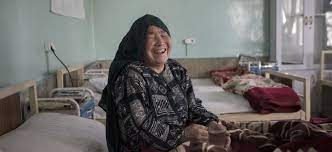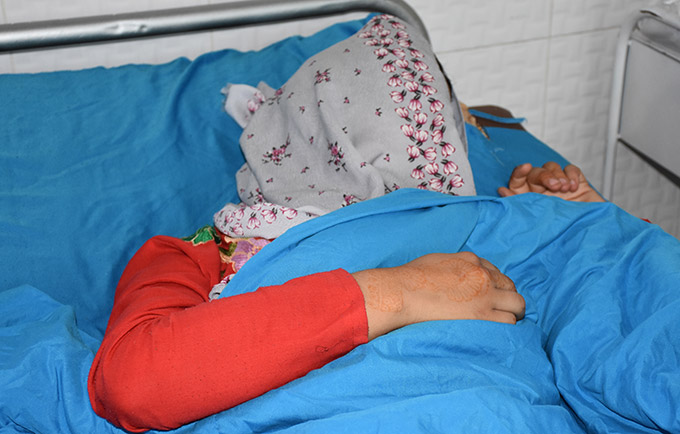Suffering in silence: Obstetric fistula in Asia
The reportage from Afghanistan, Nepal and Pakistan highlights the efforts in treating fistula through stories of women who endured and overcame the condition.
The reportage from Afghanistan, Nepal and Pakistan highlights the efforts in treating fistula through stories of women who endured and overcame the condition.

I was 15 years old when I got married, and my husband was 22. My sister-in-law saw me at one of my relative’s wedding and made all the arrangements for her brother to have me,” Sharifa recalls. Forty years later, she describes this as the start of a life derailed by obstetric fistula. Today, Sharifa looks fragile in the way she moves, sits and talks. She is anything but.

Obstetric fistula entered my life when I was 12 years old.
It was my final year in primary school, and I was embarking on a study of my West African roots when I came upon a story in the Wall Street Journal about a young Tuareg girl in Niger named Anafghat Ayouba.
The story began with Anafghat as a pre-teen, around the same age I was. She was married by age 11, had a stillborn child a few years later, and developed obstetric fistula. I was shocked to learn about fistula’s devastating impact on Anafghat, her life and her future. Fortunately, she received treatment.

"I was scared and did not understand what was going on", says 28 year-old Basgul, a Family Health Action Group member in Sangan, one of the most remote villages in Daikundi Province.
Two years ago, she developed an obstetric fistula during the delivery of a stillborn baby that lasted three days. After a repair surgery at Malalai Maternity Hospital in Kabul she picked up her life again and now she uses her experience to give lifesaving advice on maternal health to other women in her community.

Kabul, Afghanistan - Within the gates of Malalai hospital hundreds of women, children and anxious men sit in the few sunny areas of the courtyard, bouncing sick babies on their laps, waiting. Inside the female-staffed maternity hospital, the halls resonate with the moans of women in labor while they share beds in crowded rooms humid with the stress of new birth.

KABUL, Afghanistan – “I saw myself as the living dead,” 50-year-old Laila* told UNFPA. She suffered terribly while giving birth in Pakistan 27 years ago. The prolonged, obstructed labour left her with an obstetric fistula – one of the most serious injuries that can occur during childbirth.
The fistula – hole between the birth canal and bladder or rectum – can cause pain and chronic infections. It also causes incontinence, which often leads to women’s social isolation.